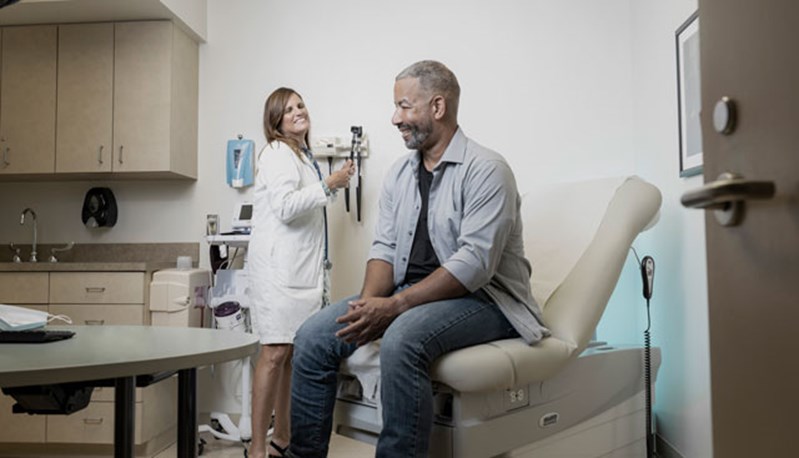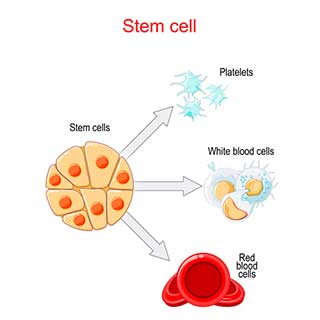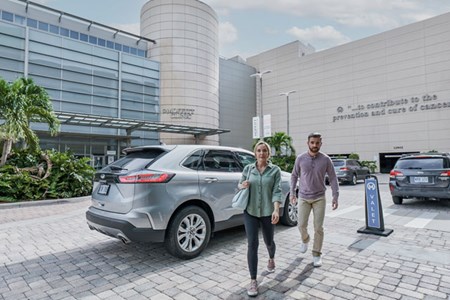What Is an Autologous Stem Cell Transplant?

An autologous bone marrow transplant (or peripheral stem cell transplant) is a procedure for certain types of cancer that involves giving the patient high-dose chemotherapy to kill the cancer cells, followed by an infusion of stem cells that have been collected previously from the same patient. Unlike an allogeneic transplant, an autologous bone marrow transplant does not require finding a donor, as it uses cells from the patient's own body.
Why is this procedure used?
An autologous bone marrow transplant is a treatment option for patients with certain forms of cancer, mainly lymphoma and multiple myeloma, which respond to high doses of chemotherapy. However, these intense treatments can also damage or kill other cells in the body.
 Blood stem cells are cells that live in the bone marrow and form all the cells in the blood. These cells are especially sensitive to chemotherapy and will die when exposed to high doses of chemotherapy, which could result in long-term periods with very low blood counts. To protect the bone marrow stem cells from the damaging effects of chemotherapy, we collect stem cells from the patient's blood prior to the chemotherapy and give them back to the patient after the treatment. This allows us to administer chemotherapy to the patient safely since it uses the patient's own stem cells. These cells will restore the bone marrow without having any potential harmful effects on the patient.
Blood stem cells are cells that live in the bone marrow and form all the cells in the blood. These cells are especially sensitive to chemotherapy and will die when exposed to high doses of chemotherapy, which could result in long-term periods with very low blood counts. To protect the bone marrow stem cells from the damaging effects of chemotherapy, we collect stem cells from the patient's blood prior to the chemotherapy and give them back to the patient after the treatment. This allows us to administer chemotherapy to the patient safely since it uses the patient's own stem cells. These cells will restore the bone marrow without having any potential harmful effects on the patient.
The potential side effects of an autologous transplant are related to the high-dose chemotherapy, however, with the supportive care provided by the experienced multispecialty team at Moffitt, this outpatient procedure is very safe.
In some cases, autologous bone marrow transplants may also be used to treat some types of leukemia, sarcoma and testicular cancer.
What you can expect
 If an autologous bone marrow transplant is recommended, the process involves:
If an autologous bone marrow transplant is recommended, the process involves:
- Pre-transplant evaluation - This step consists of a series of tests and evaluations to ensure that the patient can proceed safely with the recommended autologous bone marrow transplant. This evaluation takes approximately three days and involves tests such as an echocardiogram, pulmonary function tests, psychosocial evaluation and restaging of the primary cancer.
- Mobilization and collection of stem cells - Stem cells live inside the bone marrow, therefore the patient needs to receive a growth factor (injection), which is a medicine that mobilizes the stem cells to the blood so that they can be collected. Patients receive this growth factor daily for four days and stem cells are collected the next day. For most patients, we are able to collect the number of stem cells needed in one to three days. The collected stem cells are then frozen until needed. In some cases, we collect enough cells for two transplants and keep half of the cells in storage for potential future use.
- High-dose chemotherapy – High-dose chemotherapy is given to the patient for one or several days depending on the cancer being treated.
- Conditioning the patient – Conditioning is used to provide treatment and prepare the patient’s body for the transplant. This typically involves chemotherapy or immunotherapy over the course of several days.
- Transplanting the stem cells – From one to a few days after the high-dose chemotherapy, the stem cells are thawed and reintroduced to the patient through an IV or central line, at the bedside. Following the blood or bone marrow transplant, the treatment team will monitor the patient’s blood cell counts and progress daily to manage the side effects of the chemotherapy and help reduce the risk of complications.
Patients receiving an autologous bone marrow transplant may be able to undergo the entire transplant process as an outpatient unless they develop a side effect that requires a short hospitalization, such as a fever. Patients will receive the same level of care as inpatients but are able to leave the center daily and stay in local lodging with their caregiver. Moffitt is the only transplant center in Florida offering outpatient transplants. We have performed more than 1,400 outpatient autologous bone marrow transplants since the outpatient transplant program began in 2013. Your transplant doctor will discuss whether outpatient transplantation is an option for you.
Medically reviewed by Melissa Alsina, MD
If you would like to learn more about undergoing an autologous bone marrow transplant or receiving any other cancer treatment at Moffitt, fill out a new patient registration form or call 1-888-663-3488.
Diagnosis and Treatment
